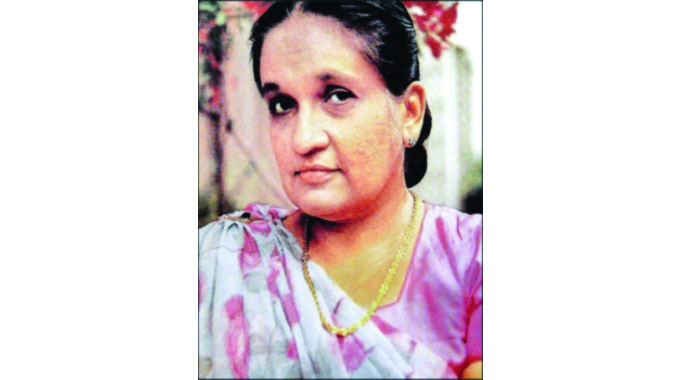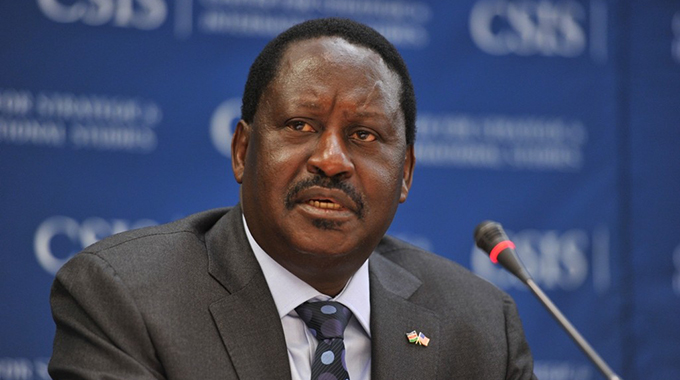2nd republic warms up to the idea of more women in politics

Ruth Butaumocho African Agenda
More than 70 years ago, Sri Lanka wrote its piece of history, gaining global fame when the country sworn its first woman prime minister.
Mrs Sirimavo Bandaranaike was on July 20, 1960 sworn as the world’s first female prime minister of Ceylon — now Sri Lanka.
The event attracted global attention that the British press had to coin a new description, “stateswoman” in acknowledgement of the new gender dynamics that appeared to sweeping across, upsetting the patriarchal systems that only acknowledged male leadership.
Mrs Bandaranaike, who was persuaded to venture into politics following the assassination of her husband, will go down in history as one of the most powerful global woman who shaped perceptions on the role of women in politics.
While her political career spanning over 50 years was punctuated with challenges, her tenacity and unwavering passion for people, saw her serving three terms as prime minister of Sri Lanka, though at different intervals.
With no strong backup of a global women’s movement back then, her trailblazing leadership qualities and survival in politics for such a long period-albeit with challenges is historic.
More than 20 years after Mrs Bandaranaike’s death, several political analysts and politicians, who she worked with during her time still describe her as a “practical political leader, who had capacity to win over other political parties to form political coalitions through compromise and accommodation.”
Mrs Bandaranaike’s political career has inspired millions of female politicians, who have gone on to become global leaders.
In the absence of a feminist movement pushing for global female representation, Mrs Bandaranaike was a lone voice, aggressively pushing for the recognition of women’s political governance until the election of the worlds’ second female Prime Minister, Mrs Indira Ghandi of India six years later in 1966.
More than seven decades after the debut female leadership, women find themselves in much better space, where they can push and agitate for more women to be considered for powerful political offices across the globe.
Their aspirations to political office is now being ably supported by a litany of legislations, a growing movement that supports female political ascendancy, high level of awareness and political will from leadership.
Mentorship by seasoned female politicians eager to pass on the baton stick is slowly becoming a trump card in agitating and pushing for more women in political office.
It is against this background that the nation welcomes the efforts by several southern African stakeholders to create an intergenerational platform that affects women’s political participation across generations.
Zimbabwe this week hosted a political regional event that was attended by more than 100 participants from various countries in Southern Africa.
The intergenerational dialogue that was held in Harare early this week running under the theme: “Stimulating Inter-generational Dialogue and Solidarity Between the Generations: A Shared Responsibility” was organised by African Women Leaders Network, a continental platform meant to galvanise women’s leadership of Africa and drew several women from the continent who have either retired from active politics and those still in politics.
During the event, participants from various political backgrounds had an opportunity to interact and listen to narratives from political luminaries, who shared their experiences to encourage young women and youth to take part in politics.
Speaking during the dialogue, war veteran and seasoned politician, who is also the Minister of Information, Publicity and Broadcasting Services, Monica Mutsvangwa implored young women to take up politics, which said was open for everyone.
“As seasoned politicians we are calling on the youth and women to consider going into politics. We are available to mentor you.”
SADC Parliamentary Forum secretary general Ms Boemo Sekgoma called for the inclusion of more women in politics, saying that the 50 percent representation of women in Parliament was vital for equal and effective participation.
Reiterating the importance of having more women in Parliament, President Mnangagwa said several measures to promote inter-generational equity, including reserving seats for women and youth in both Parliament and local authorities were among the reforms of the Second Republic to build bridges between individuals of different generations from the local and national level.
In a speech read on his behalf by Vice President Constantino Chiwenga in Harare during the dialogue, President Mnangagwa said his administration had signed international protocols aimed at bringing gender equity and increase the number of women in decision making positions.
“In this regard, my Government has put in place various measures to promote inter-generational equity, including reserving seats for women and the youth in both parliament and local authorities. In pursuance of the objectives of Agenda 2063, my Government, through our legal frameworks, values gender equality and equity in politics.”
Apart from Zimbabwe being a signatory to many declarations aimed at increasing women’s leadership and decision-making, Zimbabwe has extended provisions in the Constitution which provide a quota of 60 seats set aside for women for proportional representation in Parliament.
In addition, the Government has introduced a 30 percent women’s quota at local government level. These positive developments, which counter-balance the constituency-based first past the post electoral system, are already being viewed by some as highly competitive and not friendly to women.
However, be it as it may such attempts to elevate more women in politics may not achieve much unless efforts are made to ensure that they remain in office against all odds.
It is a fact that across the globe, effectively implemented gender quotas have led to significant strides in female representation at the local and national level.
However the status quo has to be maintained through a number of provisions that ensure that the figures do not remain static, and neither should the same women continue to be labelled as “additional freebies” to make up the numbers, but their presence can also count.
The same women would need to be allocated constituencies, where they are accountable to their people, can partake in developmental projects so that they contribution can become significant.
Giving them constituencies, will ensure that they can still independently campaign and win in the constituencies they had been working in, once they are no longer eligible to qualify under the proportional representation ticket.
While Governments across the continent has warmed up to the ascendancy of women in politics over the years, looking at a litany of measures being taken across, political parties have been parochial in accepting female governance.
This explains why nations continue to witness a dismal decline in the number of women being voted in power because they are simply refusing to open political structures to allow more women to participate and be voted into power.
Far from allowing women to participating by creating a conducive environment at grassroots level, political parties have become highly contested areas, where well-resourced men, well connected with senior politicians within party ranks, continue to dominate.
By nature, politics being a game of resources, have seen aspiring female politicians being elbowed out of the race, because they simply cannot afford to buy their way into the structures, let alone oil the campaigns, which require money.
Unlike in the time of Mrs Bandaranaike, when the stakes where in favour of men, aiming for political office remains a hard hit for women, unless political parties open up to the structures to allow capable women to contest for political office.
Creating such platforms such as the intergenerational dialogue and invite political leaders from all political parties may open up spaces for more women in politics.
Feedback:[email protected]









Comments